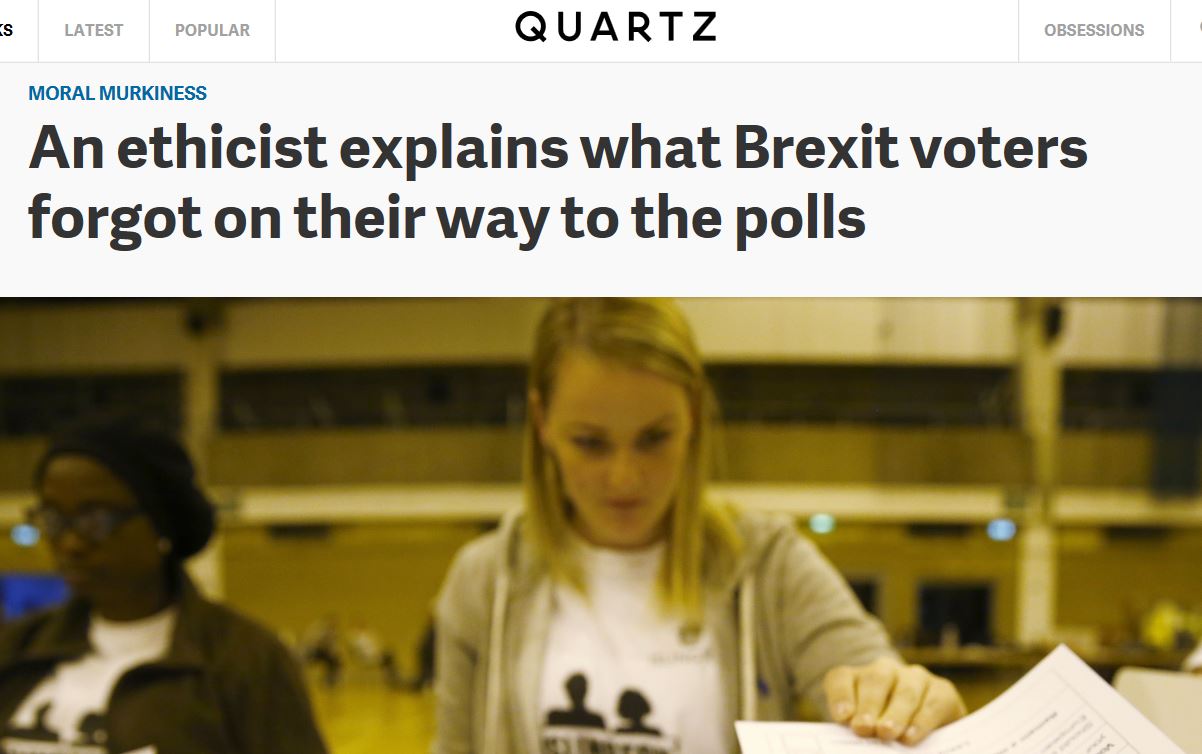Every Maltese person who can read English should read this article about the ethics of voting
Here it is. Read it over coffee. Read it before you do anything else. This is exactly what I mean when I write (repeatedly and often ineffectively) that your vote is NOT a weapon, that it is not currency, that it is not something to use to pay people back or for leverage, that refusing to vote on the basis that you like neither party is unethical, that you have a moral – not political – duty to choose which government is going to be better for the country, which leader is going to make the better prime minister.
The Brexit vote, this article explains, is the result of mass irresponsibility and ignorance of what the duty to vote entails.
The article begins:
The Brexit referendum will probably be the defining political event in the UK over the next few decades. But to know whether leaving or remaining is actually a good idea requires tremendous social scientific knowledge–knowledge that most Britons lack. The day after the referendum, in the UK, there was a sharp spike in Google searches asking exactly what the EU is and what leaving it will do. This suggests many Britons voted first and did their homework second. Already, many UK voters express regret.
Over the past few years, we’ve see the rise of such populist movements across the West, driven by angry, resentful, low-information voters. Brexit is what happens when people fail to regard voting as a morally charged act. Most voters think that because voting is their right, they should feel free to vote however they want, without having to put in the hard work to make a wise decision. That’s a mistake.
(…)
Voting is not like choosing dinner from a menu. When an individual picks a curry from a food truck, she chooses only for herself. If she makes a bad choice, only she bears the consequences.
But the individual act of voting impacts everyone. When the majority makes a bad choice, everyone suffers, including dissenting voters, foreign residents, foreigners living abroad, and children who are ineligible to vote.
It concludes:
If voters just want to express themselves, there are safer alternatives. They could write poems, wave flags, or burn effigies. Casting a vote means exercising political power over others. It carries with it great responsibility, yet few voters take their own decisions seriously.

